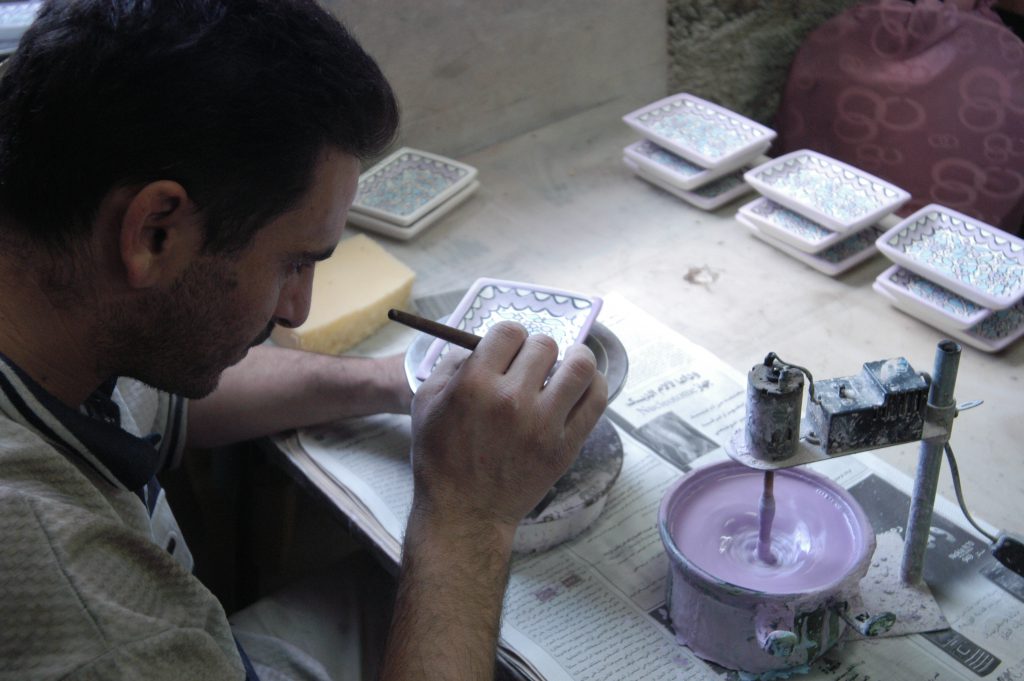FAIR TRADE
Fair trade is a trading partnership between producers and consumers based on dialogue, transparency and respect. This partnership seeks to bring about greater equity in international trade and decrease in the world’s poverty and injustice. In fair trade, the people who produce the goods – farmers, artisans, etc – receive better terms and have better working conditions than in a conventional trade relationship. This helps them improve their own lives as well as their community. Through their purchases, consumers reduce poverty and support greater global justice.
There is no such thing as purely “free trade” because powerful countries have created an uneven playing field that disadvantages producers in poor countries. Unfortunately the world’s conventional trading systems are not enough to protect producers from poverty and exploitation and properly care for our environment. Workers are not always paid a fair wage for their labour or given appropriate working hours in good working conditions. Discrimination against women and those with developmental disabilities is all too common. Fair trade helps individuals and communities improve their economic situation and decreases the negative by-products of unfair trade. By being in a fair trade partnership, producers can improve their education, knowledge, and/or skills and better care for their families and community.
Fair trade is not charity. It is a transaction where money is given for a particular product. When you give to an NGO you may receive the satisfaction of knowing that your money is used to advance a cause or provide food or services for those in need. In fair trade, the price you pay is the actual value of the product you are buying, which you will then own and be able to use however you wish. Fair trade producers aim to produce products which are competitive in the market despite the disadvantages they may face by living in a poor country or being subject to unfair conditions.
A number of organisations, many of them NGOs, have developed fair trade certifications that can be used to assure consumers that the products they purchase are truly fair trade. Although producers may claim that products were produced in “fair” conditions, with fair trade certification consumers can know that this truly was the case as well as learn more about some of the benefits provided to the producers from whom they purchase. There are hundreds of fair trade certifications provided globally. Two of the major certification groups are the World Fair Trade Organization (WFTO) and Fairtrade Labeling Organization (FLO). Certification is often shown via a mark which is part of the packaging of a product. Although you can be assured that products with the fair trade mark are fair trade items, not all fair trade products have such a mark. Why is this the case? The cost of getting this certification may be too expensive for very small or new producers. Additionally, with some types of products certification may be more difficult or even impossible due to the nature of the supply chain or materials used to create the product.
Fair trade products do not necessarily cost more. Sometimes, by cutting out middlemen and sourcing directly from producers, costs are lower. Sometimes, though, prices may be a little higher. This is usually due to the higher salary, benefits, and better working conditions provided to producers in the fair trade system. Is fair trade still worth it for consumers if the price is higher? Often the quality of fair trade items will be much better. The satisfaction of knowing that you supported fair trade is also worth far more than any extra price! You can also make the choice to reduce your own overall consumption so you can afford to increase your support of fair conditions for producers.
CROSSROADS AND FAIR TRADE
- Fair price: Trading in ways that support sustainable answers to poverty.
- Fair share: Agreeing to appropriate profit share through dialogue and participation.
- Fair chance: Developing producers’ skill sets and access to new markets, local and global.
- Fair work: Ensuring no abuse of child labour, gender equity and safe conditions.
- Fair growth: Investing in community improvement, with producer cooperatives setting priorities.
- Fair deal: Ensuring transparency and accountability at each level of trade.
- Fair care: Applying environmentally responsible methods of production.
- Fair mind: Encouraging shoppers to buy fair trade.
The FLO, as well as other groups and certifying organisations, has a “fair trade premium” given to producers in addition to the fair price paid for their products. Producers collectively decide how to use this money to improve their community, with common projects including education, healthcare, or repair or improvement of facilities. Starting in 2009, Crossroads’ Global Handicrafts has offered producers a 10% fair trade premium for strategic investments in their workplace or community. Producers decide how to use this money. Only producers in developing countries who are not already part of the FLO system are eligible for this premium. For more information email us at enquiries@cgvuk.org.
Global Handicrafts is one of the three parts of Crossroads Global Village UK. It is a crossroads between the world’s needs and resources where consumers and producers come together.
Workplace standards are determined based on a producer group’s culture and environment. Crossroads distributes questionnaires to producers regarding their workplace environment before establishing a partnership. If improvement is necessary, the group is asked to set goals and achieve incremental progress.
Producer groups must not exploit child labour to be part of a partnership with Crossroads. If any child labour is used it must comply with a number of guidelines.
Global Handicrafts prioritises groups that empower women through vocational opportunities and training because women traditionally suffer more marginalisation than men. Equal opportunities for women through training and/or promotion are encouraged. Producer groups must pay equal wages for equal work and Crossroads’ Global Handicrafts encourages wages to be paid directly to women producers rather than their husbands.

